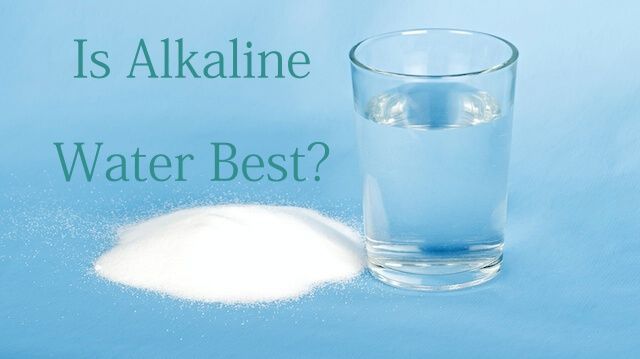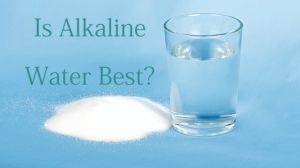
Alkaline water, often referred to as ionized water, is water with a pH level greater than 7. It’s less acidic than regular tap water and rich in alkalizing compounds like calcium, potassium, magnesium and bicarbonate.
Many people believe that the typical North American diet contributes to chronic low-grade acidosis, a condition that is sometimes linked to poor health, including heart problems as well as muscle and bone loss, but there is little clinical evidence that this condition even exists.
There are a number of astonishing health claims being made about it, mostly by marketers, with very little backed by research. Marketers claim that alkaline water works to neutralize acid in the bloodstream, boost the metabolism, and help your body absorb nutrients more effectively. They say that because it can correct excess acidity in the body’s tissues, it can help prevent or even reverse cancer, arthritis and other degenerative diseases. Some even say that it can help slow the aging process — but none of these claims have been verified.
One small study did confirm that pH 8.8 alkaline water offers good acid-buffering capacity and may have therapeutic benefits for those with reflux disease. There is also some research that it may help slow bone loss, but further investigation is said to be needed if it is able to influence overall bone mineral density, and if this benefit is maintained over the long term.
 Of course, we know that water is essential for life — there is really no other substance that is so important to our good health, and many of us are concerned about increased contaminants and pollutants in our tap water. Keep in mind that in general, tap water in America is considered quite safe compared to many other parts of the world.
Of course, we know that water is essential for life — there is really no other substance that is so important to our good health, and many of us are concerned about increased contaminants and pollutants in our tap water. Keep in mind that in general, tap water in America is considered quite safe compared to many other parts of the world.
While there is some anecdotal evidence that the pH of water could be relevant to our health, there’s really not a lot of solid research to back that up — even if alkaline water does offer some health benefits, it may be due to the minerals and not necessarily to its pH level.
For some people, increasing overall body alkalinity may not be a good idea at all, such as those with a kidney condition or someone taking a medication that alters kidney function. For them, high alkalinity can lead to negative side effects. On the other hand, athletes and exercisers may benefit as it allows active people to retain more fluid in the cardiovascular system while reducing urine output and blood osmolality. Mineral supplements like potassium, magnesium and calcium are known to decrease cardio-respiratory stress and blood lactate responses, while helping to improve endurance in athletes, which supports the benefits of mineralized water.
Proponents of alkaline water claim that drinking it helps us to avoid toxins; however, we may avoid some of the toxins found in tap water, but others are known to thrive in alkaline water, so this is a rather weak argument.
The bottom line is that for most people alkaline water is not best. Alternative medicine proponent and osteopathic physician Dr. Mercola, notes that as with most things, it’s really a matter of balance. Water that is too acidic or too alkaline can be harmful to human health — and your body was not designed to drink high-alkaline water all the time.
— The Alternative Daily
Sources:
http://articles.mercola.com/sites/articles/archive/2010/09/11/alkaline-water-interview.aspx
http://www.mayoclinic.org/healthy-living/nutrition-and-healthy-eating/expert-answers/alkaline-water/faq-20058029

